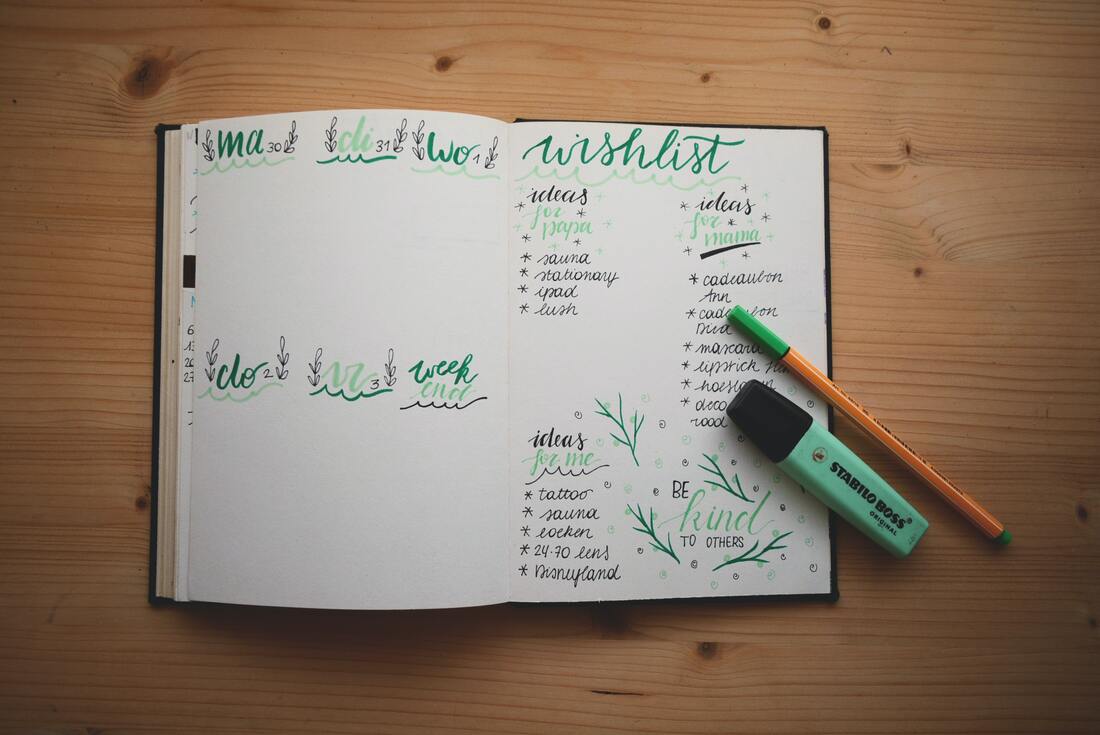|
Here are some helpful tips and tricks to journaling. DON’T: Don’t write for others, don’t write as if someone else were to read your journal, and don’t write to keep a record of your day or the weather. While these can be useful in other forms of journaling or diaries, they are not the best format for therapeutic journaling. DO: Your journal is a personal place to emotionally reflect. Do write for yourself, write to self-reflect, to improve self-awareness, and to improve your own mental health. Journaling is a place where you can completely be yourself! You can say it the way you want to, you can swear if you need to, where spelling and grammar does not matter, and your thoughts do not even have to make sense…emotions and feelings are often complicated. DON’T: Don’t write for long periods of time. DO: Set aside time to write for short periods of time. Set limits. By journaling for more than one hour at a time, instead or processing emotions, you may become emotionally stuck. Take breaks if you want to write more about a given subject. Aim to write for 15 10 30 minutes, but no more than 1 hour. DON’T: Do not judge yourself or what you write. DO: Be patient, kind, and gentle with yourself and about what you write. Nobody is perfect, and your journal does not have to be perfect either. Remember that learning is a process that unfolds with time. If you feel stuck now it may come later. DON’T: Don’t ignore or stuff your feelings as this can magnify issues. Do not continue writing if feeling emotionally overwhelmed or flooded. Do not continue writing if your genuine feelings of anger turn into an angry journal bashing another person as this may keep you stuck in anger and may not serve you well. DO: Write down your feelings and emotions, include how a situation has impacted you specifically. If you are feeling angry that is ok. Try to identify any other underlying feelings and emotions to your anger such as sadness, loneliness, depression, hurt, fear, etc. Do take breaks and engage in self-care when feeling overwhelmed or emotionally flooded. DON’T: Don’t do the same things over and over again expecting different results. DO: Get creative! Try different things. Include quotes or sources of inspiration. Sometimes pictures speak louder than words! Feel free to draw or include sketches. DON’T: Don’t do it alone. DO: We all need help! If you are feeling overwhelmed or are feeling that you need support processing the feelings and emotions that come up when journaling, connect with a counsellor or therapist. Journaling can enhance the therapeutic process of counselling and therapy and can be discussed as part of your treatment plan. If you are looking for some ideas to start journaling here are some reflection questions to try. Emotional Reflection Questions:
References:
Soulié, H. (2021, May 11). Dos and Donts of Emotional Journaling. https://hollysoulie.com/dos-and-donts-of-emotional-journaling/ Soulié, H. (2021, May 11). How to Understand Your Emotions with 50 Questions. https://hollysoulie.com/how-to-understand-your-emotions/ |
|
OverviewNWO’s source for all things relationships, mental health, wellness, lifestyle, and pandemic support. Kelly Magazine is a mental health outreach initiative created by Kelly Mental Health and supported by Kelly Mental Health Foundation, a non-profit organization dedicated to improving the community in the area of mental health.
|
Magazine |
Follow Us |
In support of @kellymentalhealthfndn |
© COPYRIGHT. ALL RIGHTS RESERVED. WEB DESIGN BY KMH





